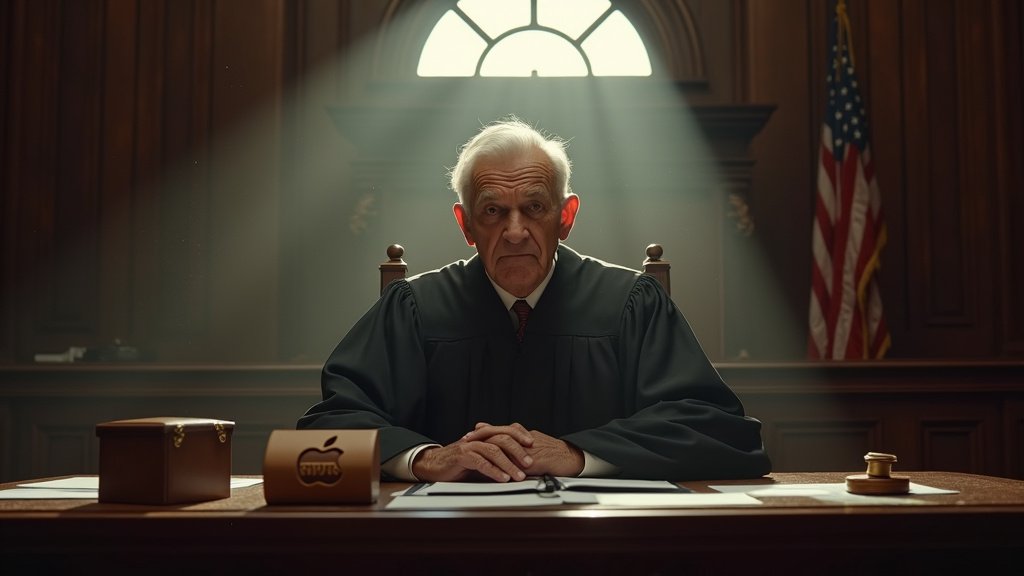A federal judge in Texas has mandated that Elon Musk’s expansive antitrust lawsuit, filed by his companies X and xAI against tech giants Apple and OpenAI, will proceed in Fort Worth, Texas. In a sharply worded four-page order, U.S. District Judge Mark Pittman sarcastically encouraged the technology titans to relocate their headquarters to the Texas city, citing the case’s tenuous ties to the chosen venue and the significant caseload of the local court.
This ruling underscores judicial scrutiny over strategic lawsuit filings, a practice often referred to as “forum-shopping.” Judge Pittman, appointed by President Donald Trump, took aim at this tactic, noting that the Fort Worth division’s docket is considerably busier than that of the neighboring Dallas division, which has more judges. He even included a footnote directing Apple and OpenAI to the City of Fort Worth’s Business Services website to “get the process started” on relocating their headquarters, a clear jab at their choice of venue.
The Antitrust Allegations at the Core of the Lawsuit
The lawsuit, initially filed in August, accuses Apple and OpenAI of orchestrating an “anticompetitive scheme” designed to maintain monopolies within the artificial intelligence market. Musk’s companies contend that Apple has unfairly favored OpenAI’s ChatGPT, integrating it deeply into iOS and promoting it heavily on the App Store, while suppressing competitors such as xAI’s own Grok chatbot. The complaint argues that this exclusive arrangement makes it virtually impossible for other AI developers to achieve prominence, thereby stifling innovation and limiting consumer choice. Musk had previously declared on social media that Apple’s practices constituted an “unequivocal antitrust violation” and that xAI would take “immediate legal action”. The suit seeks billions of dollars in damages and a court order to halt the alleged illegal agreement.
Judge Pittman’s Order: A Legal Stalemate with Sarcastic Flair
Despite Judge Pittman’s evident frustration with the venue selection, the lawsuit will remain in Fort Worth because neither Apple nor OpenAI formally requested a transfer before the court’s October 9 deadline. Pittman acknowledged that the case had “at best minimal connections” to Fort Worth, noting that beyond a few Apple retail stores, neither company has a significant physical presence there. Nevertheless, the judge stated that the defendants’ failure to file a timely motion to transfer venue was a significant consideration. X and xAI also argued that the Fort Worth division is one of the fastest in the nation for resolving civil litigation, presenting the “best chance to have their claims heard expeditiously”.
Background to the Escalating Tech Feud
The legal battle is an extension of a broader, long-standing rivalry between Elon Musk and OpenAI, with whom Musk was a co-founder. Musk has been a vocal critic of OpenAI’s direction and its partnership with Apple, accusing them of straying from their original mission. OpenAI, for its part, has characterized Musk’s legal actions as part of a “pattern of harassment”. Apple has largely remained silent on the matter, though it has previously defended its App Store practices as “fair and free of bias”.
Implications for Business and the AI Landscape
The decision to keep the lawsuit in Texas sets the stage for a high-stakes legal confrontation that could have significant implications for the burgeoning artificial intelligence industry and antitrust law. As AI continues its rapid integration into consumer products, the manner in which major platforms manage AI partnerships and app store visibility will likely face increased regulatory and legal scrutiny. Judge Pittman’s commentary also highlights a growing trend of judicial concern regarding plaintiffs strategically choosing court locations to gain an advantage.
The news marks another significant development in the ongoing legal battles involving Elon Musk’s ventures, with this particular Texas news generating considerable attention across the tech and business sectors. The case’s progression through the court system is expected to be closely watched as it could help define competitive practices in the AI marketplace for years to come.






